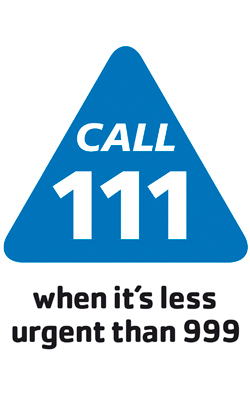 NHS 111: Enhancing Access to Urgent Care Services
NHS 111: Enhancing Access to Urgent Care Services
Introduction
Accessing appropriate healthcare promptly is vital, especially in urgent but non-life-threatening situations. To streamline this process, the National Health Service (NHS) introduced NHS 111, a free, three-digit telephone service designed to improve access to urgent care services across the United Kingdom. This article delves into the inception, functionality, and impact of NHS 111 on healthcare accessibility.
The Purpose of NHS 111
Before the introduction of NHS 111, patients seeking urgent but non-emergency medical care often struggled with knowing which service to contact. Many visited A&E unnecessarily or faced difficulties reaching out-of-hours GP services. The NHS recognised the need for a simplified, easy-to-remember contact number that could guide patients to the right healthcare service without overwhelming emergency departments.
How NHS 111 Works
The NHS 111 service is designed to provide urgent medical advice, reassurance, and direction to the most appropriate care service. When patients dial 111, they are connected to trained advisers who assess their condition through a structured questionnaire. If necessary, calls are escalated to qualified nurses, paramedics, or other medical professionals.
The NHS 111 service can:
- Provide self-care advice for minor conditions.
- Direct patients to the nearest available healthcare provider, such as a GP, pharmacist, urgent care centre, or walk-in clinic.
- Arrange emergency ambulance dispatch when required.
- Book GP or out-of-hours doctor appointments where necessary.
- Provide information on dental emergencies, mental health crises, and medication concerns.
By offering these services over the phone, NHS 111 helps reduce pressure on A&E departments, ensuring that critical cases receive immediate attention while less severe conditions are managed effectively elsewhere.
When to Use NHS 111
Patients should call 111 when they:
- Need urgent medical attention but it is not a 999 emergency.
- Have a medical issue outside GP surgery hours.
- Require medical advice but are unsure where to seek treatment.
- Need repeat prescriptions or medication information.
- Are worried about a health issue but do not require an ambulance.
For life-threatening emergencies, such as heart attacks, strokes, severe bleeding, or loss of consciousness, patients should always dial 999.
The Benefits of NHS 111
Since its full launch in 2013, NHS 111 has provided several key benefits:
- Improved Accessibility: The free service is available 24/7, making urgent medical advice easily accessible.
- Reduced A&E Overcrowding: By directing non-emergency cases to the appropriate services, NHS 111 has helped alleviate unnecessary visits to A&E departments.
- Faster Treatment: The system helps prioritise cases, ensuring that patients with urgent needs receive timely care.
- Continuity of Care: NHS 111 can share information with GPs and other health professionals, ensuring seamless care for patients.
The Introduction of NHS 111 Online
To enhance accessibility, the NHS launched NHS 111 Online, an alternative platform for assessing symptoms and receiving medical guidance. This digital service allows users to input their symptoms and receive tailored recommendations, directing them to the appropriate healthcare service without needing to make a call.
Challenges and Improvements
Although NHS 111 has been a valuable addition to the UK’s healthcare system, it has faced challenges, including:
- Initial staffing shortages leading to call delays.
- Concerns over misdiagnosis due to reliance on scripted algorithms.
- Fluctuations in service quality across different regions.
In response, the NHS has introduced improvements such as increased staffing, better integration with local healthcare services, and enhanced training for call handlers.
Conclusion
NHS 111 has revolutionised access to urgent healthcare advice in the UK, providing a free, reliable, and easy-to-use service. By directing patients to the right care providers and easing the burden on emergency services, it has played a crucial role in improving healthcare efficiency. As the service continues to evolve, its integration with digital platforms and enhanced staff training will further strengthen its impact.

Leave a Reply